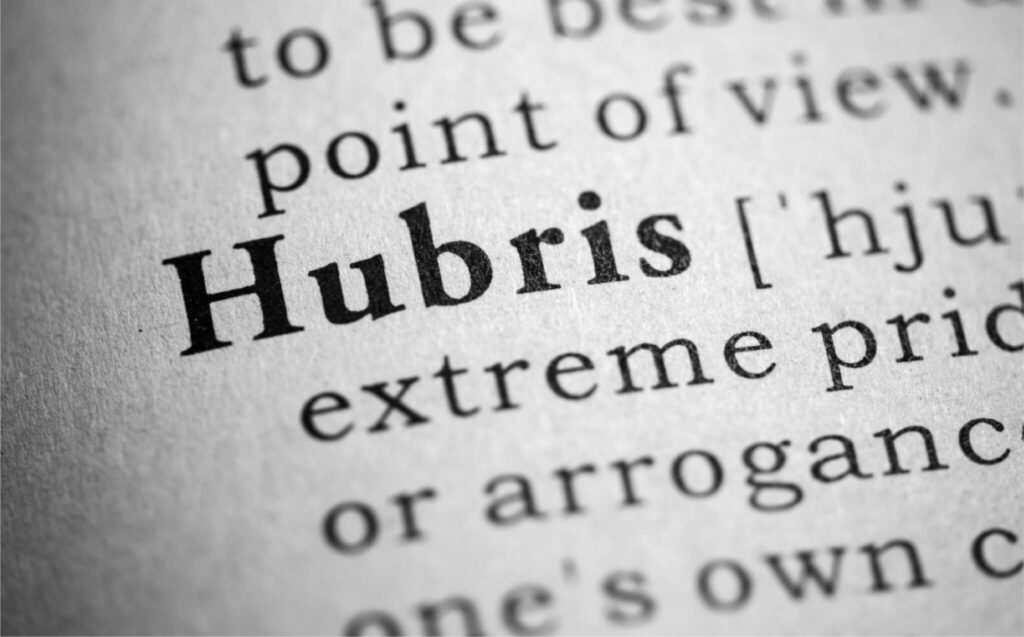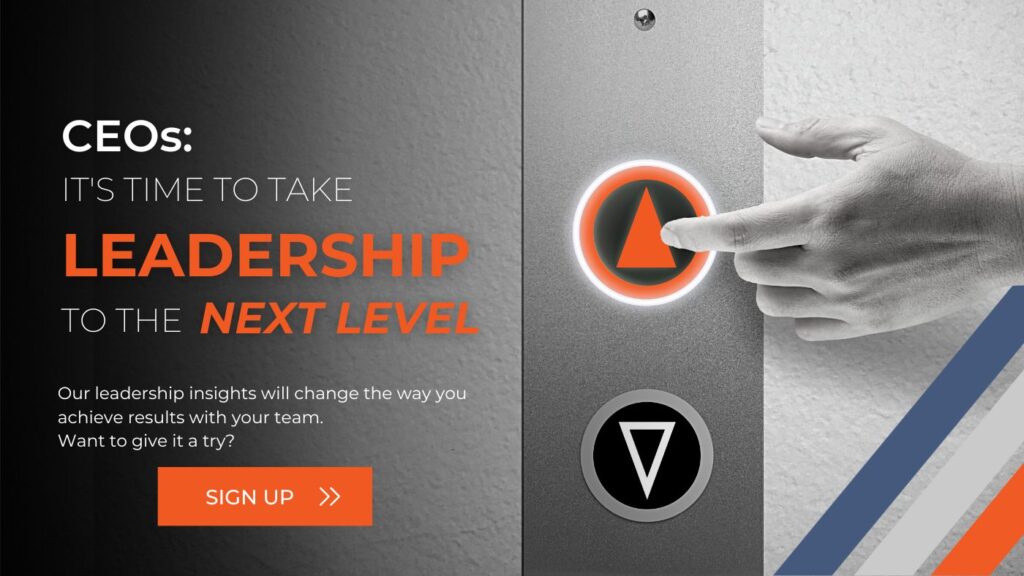I’ve always loved reading the ancient writings of Greek mythology.
The stories have always fascinated me because they spoke so eloquently about the human condition of the time.
But what I find particularly interesting is how many of those ancient texts are still relevant to our current world.
One prominent and recurring theme in those ancient stories is the idea of hubris.
For the ancient Greeks, hubris was defined when an individual in a position of power becomes so proud of himself that he forms a personal delusion and begins to think of himself as a god. This typically did not sit well with the ancient gods; as a result, the person would experience a downfall and be punished.
Hubris is seen as a character flaw in people of power when they become extremely arrogant and disconnect from reality. The ancient Greek writers and philosophers cautioned people to prevent themselves from succumbing to hubris.
Now, let’s fast forward a few thousand years to the present day, and this topic of hubris is as relevant as ever.
I believe it is a challenge that all leaders must manage – especially those who are extremely successful and yield great power.
The topic has also become important today because research from the field of neuroscience reveals that when one is consumed by power and falls victim to hubris, it may actually cause damage to one’s brain.
A recent feature article in The Atlantic magazine noted that researchers at McMaster University (my alma mater) in Ontario recently found that the brains of powerful people suffered from diminished neural activity connected to empathy.
Neuroscientist Sukhvinder Obhi examined the brains of powerful and non-powerful people using a transcranial-magnetic-stimulation machine. He found that powerful people had an impairment of the “mirroring” process that neuroscience has identified as a “cornerstone of empathy.”
The article noted that this scientific data seemed to correspond very closely with anecdotal data collected by researchers such as Dacher Keltner, a psychologist at UC Berkeley. His research found that subjects with access to power “acted as if they had suffered a traumatic brain injury – becoming more impulsive, less risk-averse, and, crucially, less adept at seeing things from other people’s point of view.” That is to say, less empathetically.
It’s not hard to find examples ripped from the headlines and from my own experience working face-to-face with some very powerful leaders. It is not unusual at times for me to encounter leaders who seem unconcerned about the consequences of their actions, completely unaware that their worlds are disintegrating around them.
Other researchers have fashioned a term for this condition: hubris syndrome.
First coined by researchers in a 2009 article published in Brain, a medical journal of neurology, hubris syndrome is described as “a disorder of the possession of power, particularly power which has been associated with overwhelming success, held for a period of years and with minimal constraint on the leader.”
The combination of all this study and data begs a critical question for all leaders: Are we destined to become victims of hubris syndrome the longer we enjoy success and increasing access to power?
I think there are things we can do to guard ourselves against this from happening. At the core, it begins with a leader’s natural capacity for maturity.
This is a subject I’ve written about before. Some leaders never master personal maturity. Sometimes, those who succumb to hubris can act like toddlers. They are prone to tantrums, or leaders lash out at the people around them.
The most obvious recent example is from the leaked video of Uber CEO Travis Kalanick berating one of his drivers. Unfortunately for Kalanick, that video triggered a series of events leading to his own personal downfall.
Even though Kalanick acknowledged his personal need to grow up and seemed genuinely committed to work on himself, it seemed too little too late. He recently announced his decision to resign from his position. This story played out just like the writings from ancient Greece.
So, how do leaders manage their power and avoid succumbing to a hubris syndrome? Here are a few ideas for you to consider.
First, research reveals that the capacity to have warmth is a critical success factor for leaders today. Warmth enables you to have compassion and empathy towards others.
Second, it’s helpful to surround yourself with people (either at work or at home) who have the courage to call you out when your arrogance starts getting the best of you. The Atlantic article shared a great anecdote from PepsiCo CEO Indra Nooyi about a conversation she had with her mother on the day she was promoted to the top rung of the C-suite. Her mother asked her before she celebrated her big news if she would go out and get some milk, a request that made Nooyi quite mad. “Leave that damn crown in the garage,” her mother admonished.
The fact that Nooyi still tells that story says a lot about having people in your life who keep you in check. It’s a reminder that you are never too powerful nor too important to make a contribution to the most menial of tasks, both at home and at work.
Finally, it’s critical to develop personal maturity. In a recent global study that my team and I conducted, we found it to be a critical element of truly accountable leaders. It helps to get regular feedback and to be open to it; it helps to reflect on your behavior from time to time. Ask yourself: Am I behaving like a toddler or an adult?
This week’s gut check question asks: Have you succumbed to hubris?
We have many resources to help you become the most accountable leader you be, develop accountable leaders on your team, and scale leadership accountability across your organization.
Signup for our monthly newsletter with the latest Gut Check for Leaders, Lead the Future Podcast, and other important leadership accountability news.
Also, you can RSVP for our upcoming webinar, join our online community of accountable leaders, or buy Dr. Molinaro’s, latest book, Accountable Leaders, on Amazon.





